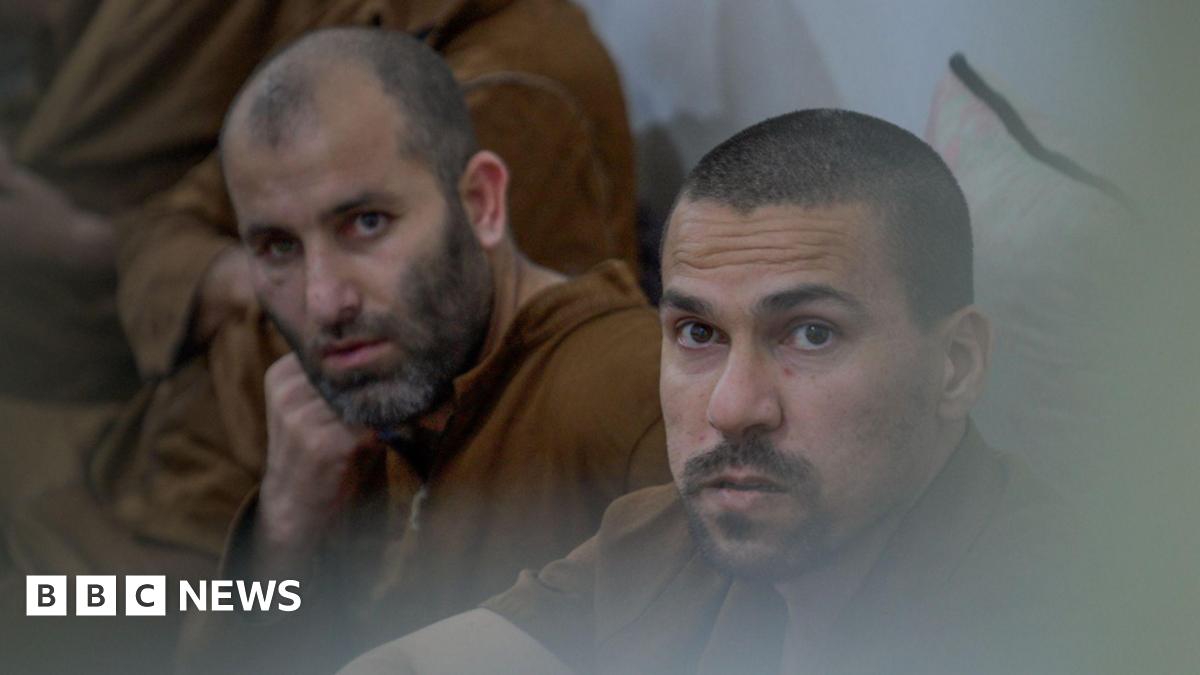“The new leader Ahmed al-Sharaa [the head of the Islamist group Hayat Tahrir al-Sham] made an address, saying he will give everyone their freedom. We also want freedom. We want to leave, most likely for Russia. It’s the only country that will take us.”
The camp manager tells us that others believe IS will come to their rescue and break them out. She asked us not to use her name as she fears for her safety.
“Since the fall of Assad, the camp is calm. Typically, when it’s this quiet, it means the women are organising themselves,” she said. “They have packed their bags ready to go. They say: ‘We will get out of this camp soon and renew ourselves. We will come back again as IS.'”
She says there’s a visible change, even in the children, who chant slogans and swear at passersby. “They say: ‘We will come back and get you. It [IS] is coming soon.'”
During our time in the camp many children raised the index finger of their right hands. This gesture is used by all Muslims in daily prayer, but it’s also widely used by IS militants.
The women in Roj camp aren’t the only ones packing their bags.
Some Kurdish civilians in the city of Al-Hasakah are doing the same – fearing a comeback by the jihadis and another ground offensive by Turkey in north-eastern Syria. This would be the fourth invasion by Turkish forces. It’s expected soon.
Jewan, 24, who teaches English, is getting ready to go – reluctantly.
“I have packed my bag, and I am preparing my ID and my important documents, “he tells me. “I don’t want to leave my home and my memories, but we are all living in a state of constant fear. The Turks are threatening us, and the doors are open for IS. They can attack their jails. They can do whatever they want.”
Jewan was displaced once before from the north-western city of Aleppo, at the start of Syria’s civil war in 2011. He is wondering where to go, this time.
“The situation demands urgent international intervention to protect civilians,” he says. I ask if he thinks it will come. “No,” he replies softly. But he asks me to mention his plea.
Additional reporting by Michael Steininger, Matthew Goddard and Jewan Abdi

